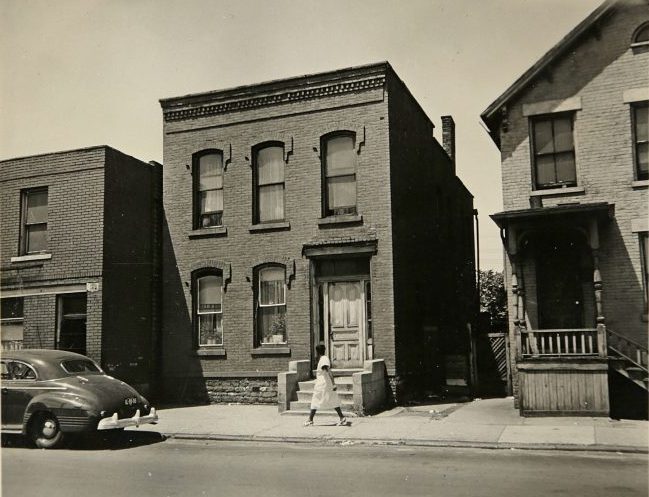Five projects will receive funding in the latest round of Pressing Matters grants, a research incentive funding program that supports research advancing the state of practice in Taubman College’s various disciplines and forges new interdisciplinary opportunities. The projects include one that aims to reconstruct Black Bottom, a thriving Afro-American community sacrificed for urban renewal projects in the 1950s and 1960s.
-
January 3, 2023
Including the patient voice when addressing racial disparities in maternal health
The data is alarming: Black and low-income people are two to five times more likely to die in childbirth or experience severe maternal morbidity than those who are white. But one important voice has largely been missing from the conversation: the patients themselves.
-
February 7, 2022
Ancestor garden: Community plants butterfly garden honoring Detroiters lost to COVID-19
“Having a loved one lost to COVID-19 pneumonia, we’re definitely happy that Douglas Jones and Mr. Whitaker are here sharing and participating and sprinkling their love and vision in the Virginia Park community.”
~ Venita Thompkins, active resident in Virginia Park
-
February 3, 2022
Detroit unemployment rate sits at 20%
Nearly one of every four parents who are not in the labor force (23%) reported they stopped working within the past year—three times the rate of other Detroiters who are out of the labor force.
-
February 3, 2022
Black Michiganders: Key findings from U-M Poverty Solutions
A representative survey from U-M’s Detroit Metro Area Communities Study demonstrates that Black Detroit residents adopted these safety measures earlier than other groups. While 59% of Black residents were wearing masks at that point in the pandemic, only 38% of white residents and 35% of Latino residents were doing so.
-
January 24, 2022
Q&A: Mary Janevic on improving the health of older adults in Detroit
“Detroit in particular has been hard-hit by the pandemic, with a COVID-19 death rate more than three times Michigan’s overall rate.”
~ Mary Janevic, associate research scientist, School of Public Health
-
October 29, 2021
With $13M grant, U-M researchers will track cancer risk from environmental exposures
Michiganders have a long history of tragic environmental exposures, from contaminated animal feed with polybrominated biphenyls (PBBs) in the 1970s, to lead and toxin contamination in Flint’s water supply.
-
September 22, 2021
Majority of Detroiters say they want police reform, many also want increased police presence
According to the survey of Detroit households conducted by U-M’s Detroit Metro Area Communities Study, a significant majority of Detroiters favor police reforms, including requiring police to be trained in nonviolent policing methods (79%), giving the civilian oversight board the power to investigate and discipline officers for misconduct (68%), and using unarmed first responders for mental health calls (66%).
-
August 30, 2021
Detroit unemployment sits at 25%—lower than pandemic peak, twice pre-pandemic rate
While there was no evidence of significant gender differences in who was unemployed, the reported reasons for unemployment were different among women and men. Forty percent of unemployed women report they are not working in part due to family obligations, compared to only 12% of unemployed men.


